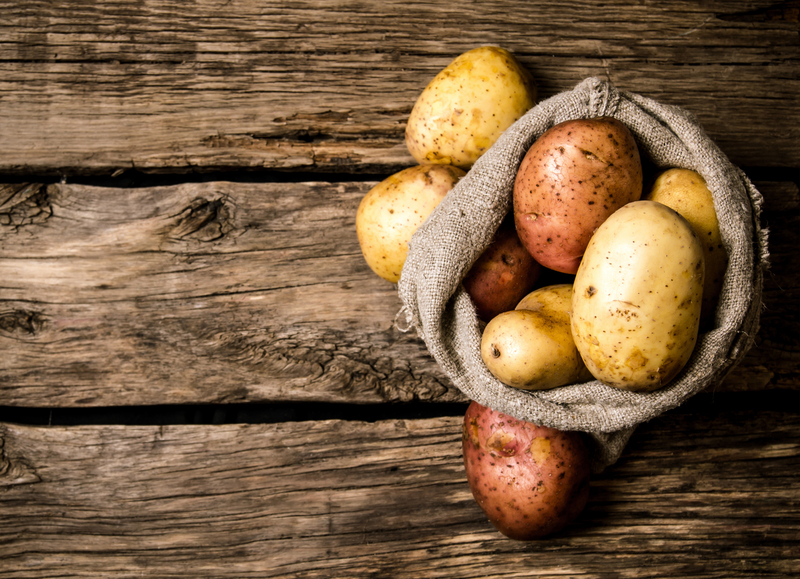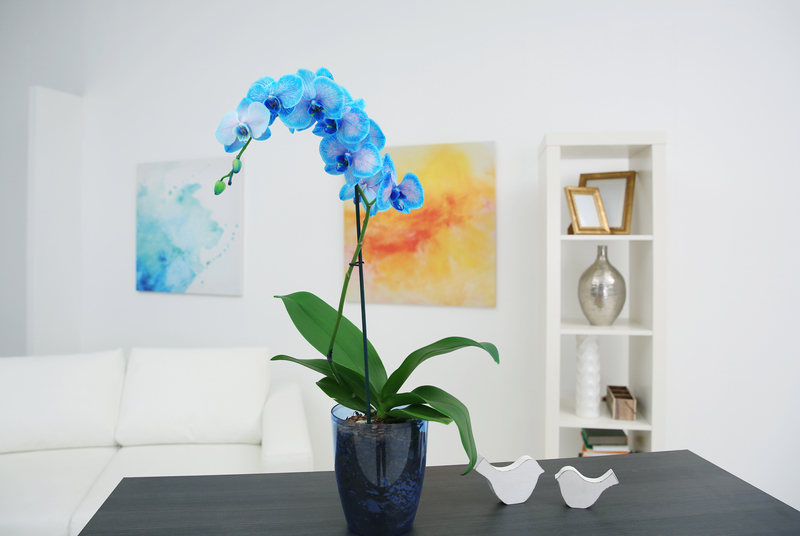How to Ensure Plant Vitality Throughout the Winter
Posted on 14/06/2025
How to Ensure Plant Vitality Throughout the Winter
As temperatures drop and daylight wanes, ensuring plant vitality throughout the winter becomes a top concern for gardeners and plant lovers alike. With the right strategies, you can help your plants survive--and even thrive--despite the harsh conditions of the coldest months. This comprehensive guide explores how to protect your plants in winter, from garden shrubs to indoor beauties, so they remain healthy and vigorous until spring returns.
Why Winter is Challenging for Plants
Winter presents a unique set of obstacles for maintaining plant health:
- Reduced sunlight impacts photosynthesis.
- Freezing temperatures can damage roots, stems, and foliage.
- Low humidity leads to dry soil and brittle leaves.
- Indoor environments often exacerbate problems due to artificial heating.

General Tips for Ensuring Plant Survival During Winter
Assess Your Plant's Hardiness
Not all plants are equally vulnerable. Hardiness zones determine which species can survive outdoors in your area. Identify your zone and choose plants accordingly. Perennials and hardy shrubs are generally more resilient, while annuals and tropical varieties may need special winter plant protection.
Mulching and Soil Preparation
Mulching is fundamental for maintaining soil temperature and moisture. Apply a thick layer of mulch (such as straw, leaves, or bark chips) around your outdoor plants before the ground freezes to:
- Insulate roots from temperature swings
- Reduce moisture evaporation
- Suppress weeds
Reduce Watering, But Don't Neglect It
Plants need less water in winter, but they should not dry out completely. Check soil moisture regularly, and water deeply when needed--especially before a hard frost. For indoor plants, avoid overwatering, as lower light levels slow down growth and water uptake.
Outdoor Plant Care During Winter
Protecting Perennials, Shrubs, and Trees
Deciduous trees and shrubs are generally well-adapted to winter, but young or newly-planted specimens are vulnerable. Ensure their survival by:
- Wrapping trunks with tree guards to prevent frost cracks and animal damage.
- Pruning only when necessary; avoid heavy pruning before winter, as it can encourage new growth sensitive to frost.
- Applying mulch generously around the root zone.
- Watering deeply during dry spells if the ground isn't frozen.
Shielding Tender Plants
If you have tender perennials or tropical plants growing outdoors, consider these protective measures for overwintering plants:
- Dig and pot them to bring indoors.
- Cover them with frost blankets or cloches on very cold nights.
- Create windbreaks using burlap or screening to reduce cold damage.
Caring for Lawns in Winter
Grass goes dormant in cold conditions, but proper winter lawn care ensures lush growth in spring:
- Avoid heavy foot traffic on frozen grass to prevent damage.
- Keep the lawn clear of debris to avoid disease and mold.
- Mow the final time a bit shorter than usual, but not scalped.
Keeping Indoor Plants Lively in Winter
Maximize Light Exposure
With fewer daylight hours and a lower sun angle, light becomes a limiting factor for indoor plants in winter. Promote plant vitality by:
- Placing plants near bright south- or west-facing windows.
- Rotating pots weekly to ensure even growth.
- Supplementing with grow lights if natural light is insufficient.
Monitor Indoor Temperatures and Humidity
Central heating can desiccate air, leading to crispy leaves and stagnant growth. To enhance plant health during winter indoors:
- Keep plants away from heat vents, radiators, and drafty windows.
- Use humidity trays, cool-mist humidifiers, or group plants together to raise atmospheric moisture.
- Maintain room temperatures between 60°F and 75°F for most houseplants.
Adjust Watering and Fertilizing Routines
Most houseplants enter a resting phase in winter and require less water and minimal nutrients. Avoid fertilizing until spring to prevent weak, leggy growth. Always check soil moisture before watering and remove any standing water from saucers to prevent rot.
Watch for Pests and Disease
Indoor plants are prone to pests like spider mites, aphids, and fungus gnats in winter. Inspect your plants regularly, and treat infestations promptly with chemical-free solutions (such as soap sprays or neem oil). Ensure good airflow and remove any dead or yellowing leaves.
Specialized Strategies for Delicate and Exotic Plants
Creating Microclimates Outdoors
If you're passionate about growing rare or non-hardy species, you can create microclimates that buffer them against winter extremes:
- Plant delicate varieties against heat-reflecting walls for passive warmth.
- Mulch heavily and use row covers to retain heat overnight.
- Install cold frames or small greenhouses for extra protection.
Overwintering Bulbs and Tubers
Cannas, dahlias, and other tender bulbs require special winter care. Dig them up after frost blackens the foliage, allow them to dry, and store in peat moss or vermiculite in a cool, dark place indoors. Replant in spring for healthy, vigorous blooms.
Hydrating Evergreens
Evergreen trees and shrubs are susceptible to winter desiccation. They lose moisture through their leaves, especially on sunny winter days. Water deeply before the first hard freeze, and consider applying anti-desiccant sprays to reduce water loss.
Common Winter Plant Problems and Solutions
Frost Damage
Sudden drops in temperature can cause frost damage on both outdoor and indoor plants. If you notice blackened foliage or split stems:
- Do not prune immediately; wait until spring to prevent further injury.
- Apply mulch and protective covers to prevent repeated damage.
Root Rot and Overwatering
Consistently moist, cold soil is a recipe for root rot. Ensure containers have adequate drainage and empty saucers after watering. Outdoors, avoid working in soggy soils and redirect runoff away from garden beds.
Leggy Growth and Leaf Drop
Low light and warmth can cause weak, stretched growth in indoor plants. Remedy this by boosting light levels, lowering room temperature slightly, and rotating plants regularly. Leaf drop may also indicate cold drafts or overwatering--adjust care as needed.
How to Prepare for Spring: Post-Winter Plant Care
As soon as winter subsides, your winter plant survival strategies should transition to spring rejuvenation:
- Remove winter mulch gradually as temperatures warm up.
- Prune away winter-damaged wood once new growth appears.
- Resume regular watering and start fertilizing as plants exit dormancy.
- Inspect for pests and diseases that may have overwintered in debris.
Eco-Friendly Tips for Winter Plant Care
Ensuring plant vitality throughout winter doesn't have to harm the planet. Consider these sustainable practices:
- Use biodegradable mulch materials, like leaves or straw.
- Repurpose old bed sheets or burlap sacks for freeze protection instead of plastic.
- Collect and recycle rainwater for use during dry winter spells.

Frequently Asked Questions About Winter Plant Vitality
-
Can I leave potted plants outside during the winter?
It depends on the species and your climate. Hardy perennials in containers may overwinter with heavy mulching, but most tropical and non-hardy plants should be brought indoors before the first freeze. -
How often should I check my indoor plants in winter?
Weekly inspections are ideal. Monitor soil, foliage color, and overall health to catch potential problems early. -
Is it normal for houseplants to stop growing in winter?
Yes, most houseplants enter a slow-growth or dormancy phase in winter due to lower light and cooler temps. -
What is the best mulch for overwintering outdoor plants?
Organic mulches like leaves, straw, pine needles, or composted bark are excellent choices to insulate roots and add nutrients.
Conclusion: Your Winter Plant Care Checklist
With a proactive approach, you can maintain plant vitality in winter and set the stage for lush, vibrant growth in spring. Always remember to:
- Mulch and protect roots
- Water wisely and avoid overwatering
- Maximize available light for indoor plants
- Monitor temperature and humidity levels
- Use protective covers for vulnerable species
- Adjust care based on specific plant needs and local climate
By understanding your plants and tailoring your care to their winter needs, you'll enjoy healthy, thriving greenery--year after year. Ensuring plant vitality throughout winter may take some effort, but the rewards are well worth it come spring!
Latest Posts
Building a Magical Garden Adventure for Children
How Sustainable Gardening Helps Fight Climate Change
Design a Tranquil Outdoor Haven with 5 Low Maintenance, Budget Ideas
The Symphony of Hedge Trimming: Dive into Shapes and Techniques

